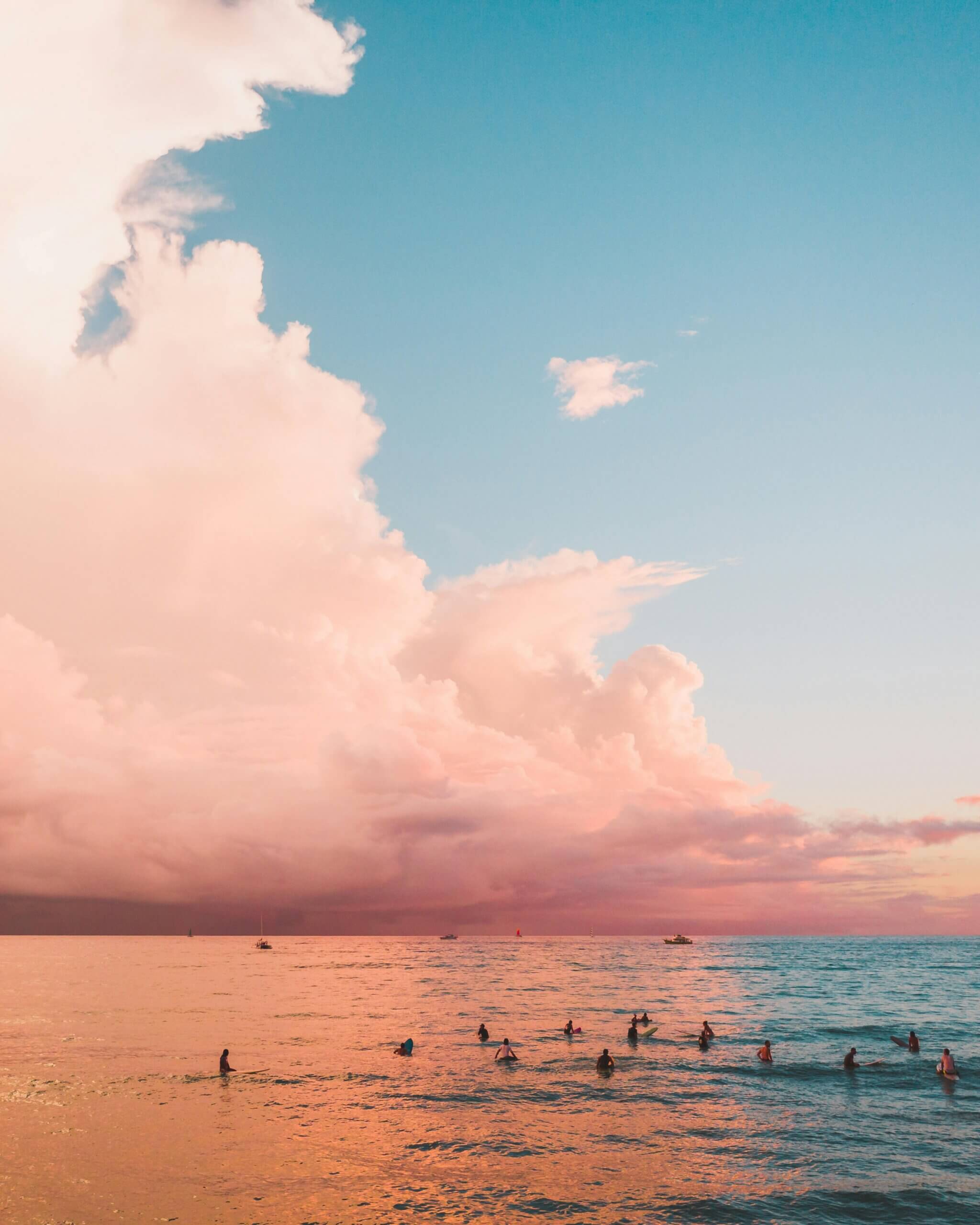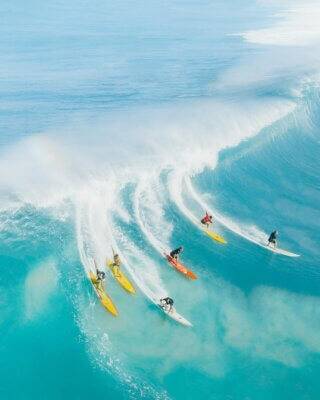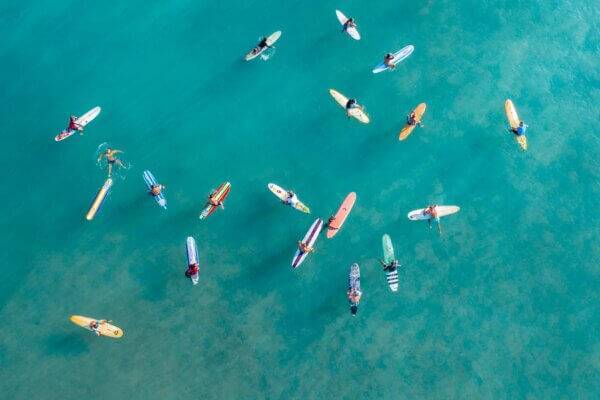
29 Jul Surf Localism Is Dead (And Maybe It Should Be)
Once upon a time in the lineup, a sacred pecking order reigned. Surf localism was law, and that law was enforced by dudes with sun-leathered faces, neck tats, and a stare that could curdle coconut water. Paddle into their peak without the proper passport (read: birth certificate from the nearest town), and you were likely to catch a board to the ribs or a verbal waxing so severe, your wetsuit would peel itself off in shame.
But let’s press pause on the cinematic nostalgia. That old-school, chest-thumping, tribal snarl.. “locals only, kooks go home!”, wasn’t always a villain. In fact, localism began as a kind of surfing self-defense mechanism. A way to protect sacred spots from being overrun by weekend warriors wielding soft tops like battering rams. It was the spiritual equivalent of putting a velvet rope around a tidepool.
When Localism Was the Good Guy
Back in the analog era, before GPS-guided surf apps, before drone surf edits, before even Instagram – imagine! – localism served a legitimate purpose. It protected fragile coastal ecosystems and tight-knit surf communities from the onslaught of tour buses and neon rashguards. Locals were stewards of the reef. Gatekeepers of surf etiquette. Defenders of secret spots you had to earn.
If you showed up, respected the lineup, paid your dues, and brought a six-pack to the beach barbecue, you might eventually get a nod. A wave. Maybe even an invite. But if you paddled in shouting “Yewww!” and dropped in on a grandpa named Wayan who had been surfing that left since before Bali had Wi-Fi, you’d be lucky to escape with your fins.

When It Got Ugly
Fast forward to now. The world got smaller. Everyone has Google Maps, surf forecasting apps, and a GoPro on their forehead. The break is no longer secret. It’s geo-tagged.
Localism morphed from noble resistance to toxic gatekeeping. Entitlement dressed up in tribal ink. People started treating waves like property deeds. Fists flew. Boards snapped. Tourists cried. It became less about respect and more about exclusion. Less stewardship, more ego.
But here’s the thing: the ocean doesn’t belong to anyone. Not even the guy who grew up 50 steps from the break and has a reef cut tattoo to prove it. The sea doesn’t ask for a passport. It doesn’t care if you flew first class from Paris or paddled barefoot from your bamboo shack. It just breaks, rhythmically, beautifully, indifferently.
Enter: A New Ethic for a New Era
We’re knee-deep in the climate crisis now. Coral’s bleaching quicker than your surf coach’s sun-streaked hair. Fish stocks are nosediving, and sea levels are rising faster than a beginner’s stoke after their first clean pop-up.
In this era, localism isn’t enough. What we need is stewardship.
A kind of shared guardianship of the breaks. An ethic where every surfer, local or traveler, treats the ocean as a living being, not a theme park ride. Where instead of screaming “My wave!”, we ask, “How do we protect this place for future groms who haven’t even learned to paddle yet?”
Imagine a surf culture where locals educate newcomers, not bully them. Where surf camps teach ocean conservation alongside pop-up technique. Where respect isn’t enforced with threats but embodied in action.
It’s not just idealistic fluff. It’s already happening in pockets around the globe. Places like Wave House Surf Camp in Bali, where local guides share not just surf tips but cultural context. Where waves are shared, stories exchanged, and stewardship modeled. You can feel it in the vibe, more like family dinner, less like turf war.

Localism 2.0: Lose the Rage, Keep the Roots
We’re not saying throw out local pride. That heritage, that connection to land and wave, that matters. But maybe we upgrade the operating system. Less caveman, more stellar water tribe.
You can still teach someone the rules of the lineup. You can still be salty when someone ditches their board in front of you mid-set. But maybe don’t send them to the ER, yeah?
In the end, we’re all just saltwater-soaked animals trying to slide across energy for a few seconds before it disappears. Let’s not turn it into a turf war. Let’s turn it into a ritual of respect.
Localism is dead. Long live stewardship.



